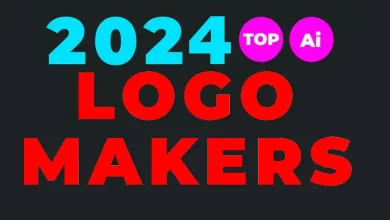AI Models in India to Require Govt Approval; What are the Implications?
India’s Ministry of Electronics and Data Expertise (MeitY) not too long ago issued an advisory to tech platforms and intermediaries working in India to adjust to rules outlined below IT Guidelines, 2021. The brand new advisory asks corporations like Google, OpenAI, and different know-how corporations to “undertake due diligence” and guarantee compliance inside the subsequent 15 days.
In what’s new, the IT Ministry has requested tech corporations to get specific permission from the Authorities of India earlier than deploying “untested” AI fashions (and software program merchandise developed on such fashions) in India.
The advisory states, “The usage of under-testing / unreliable Synthetic Intelligence mannequin(s) /LLM/Generative Al, software program(s) or algorithm(s) and its availability to the customers on Indian Web should be achieved so with specific permission of the Authorities of India and be deployed solely after appropriately labeling the doable and inherent fallibility or unreliability of the output generated. Additional, ‘consent popup’ mechanism could also be used to explicitly inform the customers in regards to the doable and inherent fallibility or unreliability of the output generated.“
Though the advisory will not be legally binding on platforms and intermediaries, it has drawn criticism from tech corporations internationally, suggesting that it may stifle AI innovation in India. Aravind Srinivas, the CEO of Perplexity AI, known as it a “dangerous transfer by India.”
To make clear the advisory, Rajeev Chandrasekhar, the Union Minister of State for Electronics and Data Expertise, took to X to make clear the important thing factors. He mentioned that searching for permission from the federal government is solely relevant to giant platforms, which embrace giants like Google, OpenAI, and Microsoft. He mentioned advisory doesn’t apply to startups. He additionally factors out that the advisory is geared toward “untested” AI platforms.
It’s value noting that India’s home-grown Ola launched its Krutrim AI chatbot not too long ago, advertising and marketing the chatbot as having “an innate sense of India[n] cultural sensibilities and relevance“. Nevertheless, based on an Indian Categorical report, the Krutrim AI chatbot is very susceptible to hallucinations.
Apart from that, MeitY has requested AI corporations to “not allow any bias or discrimination or threaten the integrity of the electoral course of together with through using Synthetic Intelligence mannequin(s)/ LLM/ Generative Al, software program(s) or algorithm(s).“
The recent advisory is issued within the backdrop of Google Gemini’s recent misfire the place the AI mannequin responded to a politically delicate query, drawing ire from the institution. Ashwini Vaishnaw, India’s IT Minister, warned Google that “racial and different biases won’t be tolerated.”
Google rapidly addressed the difficulty and mentioned, “Gemini is constructed as a creativity and productiveness software and will not at all times be dependable, particularly in terms of responding to some prompts about present occasions, political matters, or evolving information. That is one thing that we’re always engaged on enhancing.”
Within the US, Google not too long ago confronted criticism after Gemini’s picture era mannequin failed to supply photographs of white folks. Customers accused Google of anti-white bias. Following the incident, Google has disabled the picture era of individuals in Gemini and is working to enhance the mannequin.
Other than that, the advisory says if platforms or its customers don’t adjust to these guidelines, it’d lead to “potential penal penalties.”
The advisory reads, “It’s reiterated that non-compliance to the provisions of the IT Act and/or IT Guidelines would lead to potential penal penalties to the intermediaries or platforms or its customers when recognized, together with however not restricted to prosecution below IT Act and several other different statues of the felony code.“
What May very well be the Implications?
Whereas the advisory will not be legally binding on tech corporations, MeitY has requested intermediaries to submit an Motion Taken-cum-Standing report to the Ministry inside 15 days. This will have wider ramifications not only for tech giants providing AI providers in India, however may additionally stifle AI adoption and total technological progress in India in the long run.
Many are involved that it could create extra pink tape from the federal government and enormous corporations could also be hesitant to launch highly effective new AI fashions in India, fearing regulatory overreach. Thus far, all tech corporations have stored up with the newest tendencies in releasing superior AI fashions in India, on par with Western nations. In distinction, Western nations are being extraordinarily cautious about AI rules which will hinder progress.
The brand new regulation could create “extra pink tape” from the Indian authorities and giant corporations could also be hesitant to launch highly effective new AI fashions in India, fearing regulatory overreach
Other than that, consultants say that the advisory is “imprecise” and doesn’t outline what’s “untested.” Corporations like Google and OpenAI do in depth testing earlier than releasing a mannequin. Nevertheless, as is the case with AI fashions, they’re educated on a big corpus of knowledge scraped from the net and will exhibit hallucinations, producing an incorrect response.
Almost all AI chatbots disclose this info on their homepage. How is the federal government going to determine which fashions are untested, and below what frameworks?
Curiously, the advisory asks tech corporations to label or embed a “everlasting distinctive metadata or identifier” in AI-generated knowledge (textual content, audio, visible, or audio-visual) to determine the primary originator, creator, person, or middleman. This brings us to traceability in AI.
It’s an evolving space of analysis within the AI area, and to this point, we have now not seen any credible option to detect AI-written textual content, not to mention determine the originator by means of embedded metadata.
OpenAI shut down its AI Classifier software final yr, which was geared toward distinguishing human-written textual content and AI-written textual content because it was giving false optimistic outcomes. To battle AI-generated misinformation, Adobe, Google, and OpenAI have not too long ago employed the C2PA (Content material Provenance and Authenticity) normal on their merchandise which provides a watermark and metadata to generated photographs. Nevertheless, the metadata and watermark could be simply eliminated or edited utilizing on-line instruments and providers.
At the moment, there may be no foolproof methodology to determine the originator or person by means of embedded metadata. So, MeitY’s request to embed a everlasting identifier in artificial knowledge is untenable at this level.
So that’s all about MeitY’s new advisory for tech corporations providing AI fashions and providers in India. What’s your opinion on this topic? Tell us within the feedback part under.



